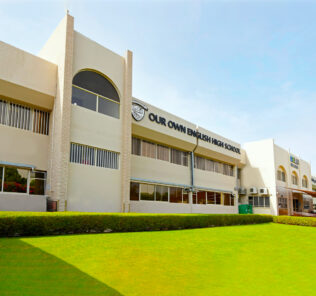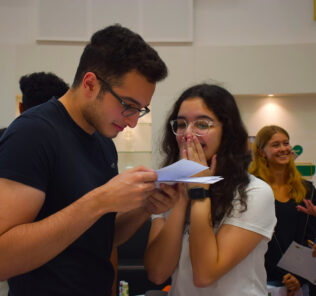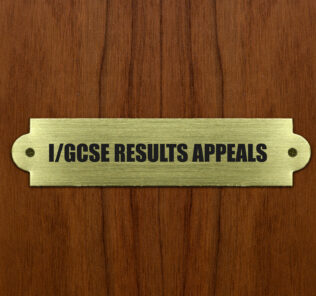UK broadsheet The Telegraph is quoting an anonymous insider Whitehall source who claims:
“Teachers have told us they have had pupils doing subjects at A-Level that they shouldn’t really be studying. We need grades to be a fair reflection of abilities.”
Having spoken to our SchoolsCompared Education Panel, we’re not convinced at all this is anything but an outlier case – and perhaps a little bit of making mountains out of molehills. Not one teacher we spoke with this morning could confirm a single case of a student securing a place to study A Levels on the basis of an inflated GCSE grade who was not managing. More than one of our panel suspected that the source was inventing a story to justify the British government’s move to reduce grades in their push to manage grade inflation and secure buy-in from potentially incensed parents seeing their child’s predicted grades fall this year.
The reasons we think that it is unlikely that schools are filled with students studying A levels that are struggling and shouldn’t be on those courses is twofold:
First, any schools worth their salt, when considering the subject and qualification pathways available to students on receiving their GCSE results look beyond the certificates to a broad range of factors when weighing up their decision. The passion of the student for the subject – just how much they want to study a subject and pathway and will give it their all comes high up the list, as well as their achievements and abilities demonstrated over the two years of GCSE study. As we argue in our GCSE opinion piece this year, exams are not a good metric of a child’s ability. Find out why here.
Second, there is the issue of stupidity – more on this below.
The world is divided on the issue of ability. Some argue that some people are inherently capable – and others not. In its harshest, black and white form, this is expressed in the view that “some people are clever and some dunces”, with the corollary that some people, however hard they work, will never pass an exam. We think this black and white approach is both cruel and utterly misleading. To follow this to its logical conclusion, you would have to accept that some people are born to be failures on these terms. It also suggests that even the best teacher cannot get the best from a child. We believe that, with hard work and outstanding teaching, nothing is impossible. It may take longer for some children (and adults!), but with time passion and energy any subject should be within the reach of the vast majority of us. This approach also naturally fails many children who develop later. Engines can fire at any time – and often do later when children have left school.
What do you think? Are we being overly optimistic? Too romantic? Do you think that a child who adores History GCSE, loves the subject and is never out of a history book should be refused the chance to study for the A Level? Can it really be right that a bad day in an exam should be the pivot on which our children’s future rests? Are all our lives predetermined so we can never be more than we are?
We would love to hear your thoughts on whether we should be inspiring children with confidence that they can do anything with perseverance they set their hearts on, or whether we should direct them to be “realistic”, even if it means crushing their passions and labelling them forever “”stupid.”” Or is there a middle way? Please email the team at [email protected]. We would love to hear from you.
You can read the original article on The Telegraph here
© SchoolsCompared.com. A WhichMedia Group publication. 2022. All rights reserved.







































































Leave a Response